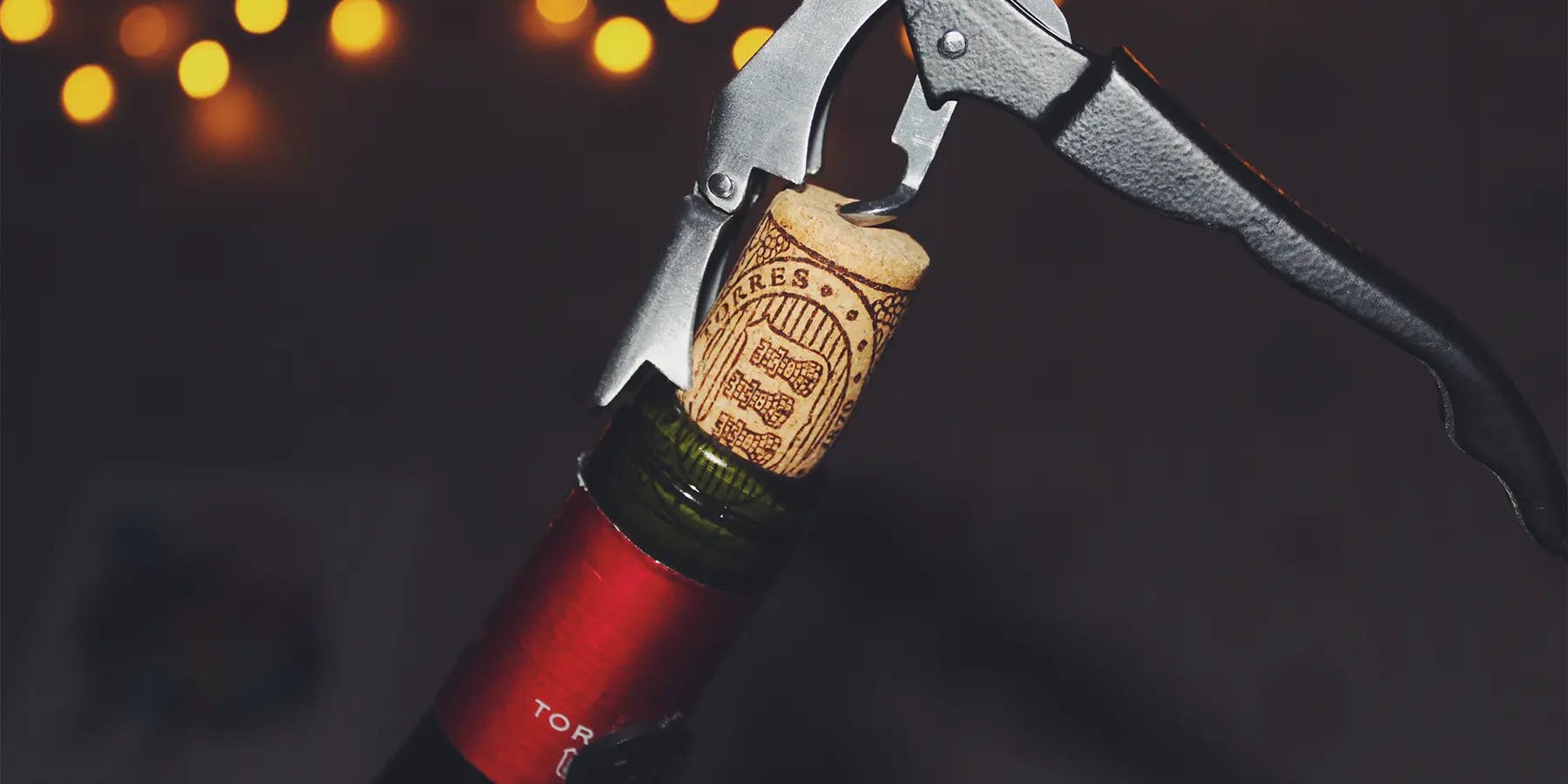- Wine world
5 tips for keeping a bottle of wine open!
- Wed, Oct 4, 2023 at 12:08

If a wine is not consumed as soon as it is opened, it loses its aromatic intensity within a few days, then oxidises and develops vinegar-like aromas...
Here's our wine advice!
1 - Recap immediately after serving
A vacuum stopper works on the same principle as a wine pump, creating a partial vacuum in the bottle. It is a specially designed stopper with a small built-in pump that removes the air. Once the air is removed, the vacuum stopper hermetically seals the bottle, preventing oxygen from entering. It's a practical and inexpensive way to keep your wine open for a few days, or even longer.
Above all, don't put the cork back in, as it could carry certain bacteria into the wine.
Do you tend to put a silver spoon in your bottle of Champagne? It's a myth! Use a Champagne stopper instead.
2 - Clearing the air
For optimum preservation of your grand cru, using a vacuum pump to remove air from the bottle is highly recommended, especially when less than half the bottle is left. Reducing exposure to air is essential to minimise the risk of oxidation. Once the air has been carefully removed from the bottle, you can extend the refrigerated shelf life by a further two to three days.
3 - Keep the bottle upright
Unlike unopened wine bottles, opened wine bottles must be stored upright. This allows the wine to minimise the surface area in contact with the air, reducing the risk of oxidation. Be sure to replace the airtight cork after each use to maintain the quality of your wine.
4 - The right temperature
Temperature is a key factor in keeping a bottle of wine open. Most red, white and rosé wines need to be stored at different temperatures to maintain their quality. Red wines are generally best kept at cellar temperature, around 12 to 16 degrees Celsius. White and rosé wines, on the other hand, do well at refrigerator temperature, ideally between 7 and 10 degrees Celsius. Make sure you store your open bottle of wine at the right temperature to avoid it turning sour or losing its subtle aromas.
5 - Favour darkness and stability
To preserve the quality of your open wine, protect it from direct light, especially red wine, which is sensitive to light. Ideally, store it in a dark place such as a cupboard or crate. Make sure you also keep your bottle vertically stable, as this ensures an optimal tasting experience with every sip, preserving the unique qualities of your wine.
Are you a fan of gadgets?
Coravin's innovative tool effectively solves the dilemma of preserving open bottles of wine. Instead of resealing the bottle after use, Coravin proposes a unique approach: it inserts a hollow needle through the cork, similar to a syringe, to extract the wine while simultaneously injecting a neutral gas. This method preserves the wine for several months without alteration. Want to know more? Visit the official Coravin website.
